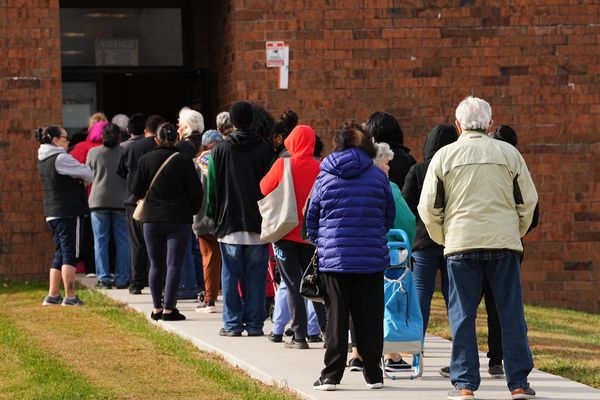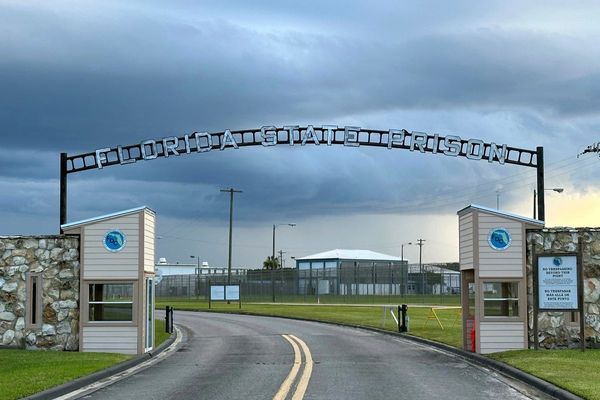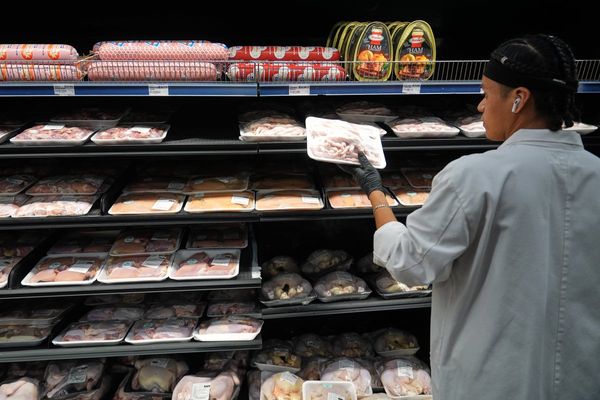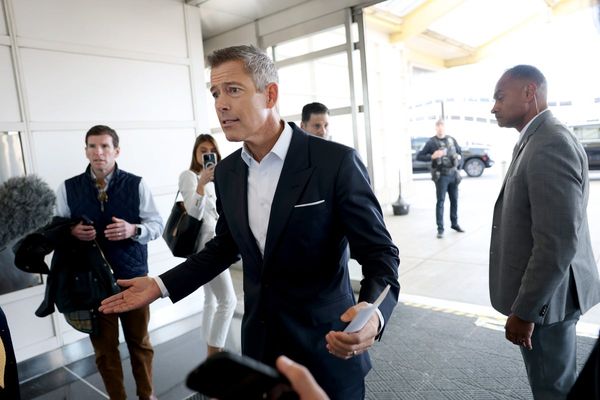
Viktor Orbán must have been feeling the tension – and perhaps a bit left out.
As Karoline Leavitt, the White House press secretary, held court – on the instruction of Donald Trump – at a lunch held in honor of the visiting Hungarian leader on Friday, Orbán, self-anointed avatar of international illiberalism and Maga role model, began cracking his knuckles.
Then, as Leavitt waxed loquaciously on how Trump’s stellar achievements in reducing prices were being unaccountably missed by “the fake news”, Orbán decided to intervene more directly.
He leaned across, ostentatiously into the television cameras’ line of vision, and muttered inaudibly to Trump.
The US president duly broadcast the contents of his remarks to the room and watching media – as was surely Orbán’s intention.
“Karoline, the prime minister would like you to work for him in Hungary.”
“You know what,” Trump followed up. “It’s a very good decision you just made.”
For Orbán – or “the dictator”, as the former EU commission president, Jean-Claude Juncker, once not-so-jokingly once called him – it was mission accomplished.
Ceding the limelight to the world’s most powerful man – and one of his biggest admirers – was one thing. But to a mere press spokesperson? It was time for Orbán to remind the assembled company that they were there for his visit – and he did.
It was not the only time Orbán, who has now led his country for nearly 16 years, butted into Trump’s physical and mental space.
Several times during the near 40-minute gathering the Hungarian prime minister interjected himself into questions addressed to the man in the Oval Office – always, of course, in a way that was supportive and designed to show the pair were singing from the same hymn sheet.
Talking of hymns, Orbán went out of his way to describe his leadership in a way tailor-made to appeal to Trump’s Christian nationalist base – and not least to Vice-President JD Vance, sitting on his right.
“We are the only government in Europe which considers itself as a modern Christian government,” he said. “All the other governments in Europe are basically [a] liberal, leftist government. We are kind of a special island of difference in a liberal ocean in Europe.”
Vance has made known that he is no particular fan of Europe, and particularly its interpretation of free-speech principles.
Orbán, long a lodestar of the American and Maga right, had come to Washington to herald a “golden age between United States and Hungary” after relations were “ruined” by Joe Biden’s administration, terminology no doubt calculated to stroke the vanity of his host, who responded in kind.
“He’s respected by everybody. He’s liked by some. And I can tell you, I’m a double: I like and respect him,” said Trump.
He respected Hungary too, which he called “a big country” – a description somewhat belying the relatively modest geographical contours of the country of about 9 million, which lost two-thirds of its territory in the 1920 treaty of Trianon after it finished on the losing side in the first world war.
Orbán’s government is facing re-election next spring and Trump did not know if his friend had an opponent, but felt sure he would prevail. In fact, the main opposition Tisza party, led by Peter Magyar, has been significantly ahead in opinion polls for several months, fueled by popular discontent voiced by mass demonstrations on the streets of Budapest.
But to acknowledge that would conjure up the images of difficulties at home, where the president insisted everything was going swimmingly since the Dark Age of Biden.
Yet domestic opposition was not the only cloud on the horizon. A more immediate concern was Ukraine and its war with Russia.
Orbán has never been a fan of Volodymyr Zelenskyy and was publicly baiting him years before Trump’s notorious ambush and eviction of the Ukrainian president from the White House last February.
Like Trump, he has long fostered warm ties with President Vladimir Putin of Russia, annoying his European partners but surely all to the good in the new Washington of America First-ism.
But there was a problem. The Trump administration, tiring of Putin’s obduracy in resisting a peace deal, had decided to slap sanctions on Russian oil.
Bad news for landlocked Hungary, which – bucking the EU trend – receives 86% of its oil imports from a pipeline from Russia.
Orbán needed a Trump agreement to a special exemption for Hungary, otherwise the country would lose its economic lifeline – even though neighboring countries have fashioned ways of finding alternatives to Russian energy imports.
Without it, Hungary would face secondary sanctions from the US, resulting in possible fines or being cut off from American financial institutions. With it, Orbán would receive an economic – and with it, surely, a pre-election – boost.
Orbán, knowing the stakes, deployed flattery. When Trump repeated his tried and tested canard that Russia would never have invaded Ukraine if he had been president, the Hungarian dolloped it on thick.
“No question that if that time, the name of the United States president would have been Donald Trump, there would be no war between Ukraine and Russia next year. But what we are speaking about here is more than that,” he said.
Other European countries had only supported Ukraine because Biden had incited them, he said in a brazen denial of the outrage Putin’s invasion had evoked across the continent.
“Without the pressure coming from the United States government – I’m speaking about 2022 – the Europeans would not take that hard line that they have today on the war. The big countries of Europe rejected to be involved more than just sending some, you know, humanitarian issues.
“That’s the fact of the history.”
It’s a “fact” that many European countries would fiercely dispute.
But they were not Orbán’s audience. He needed something from his host.
Would he get it?
Time will tell, but there may have been more knuckle-cracking after the media were kicked out.







